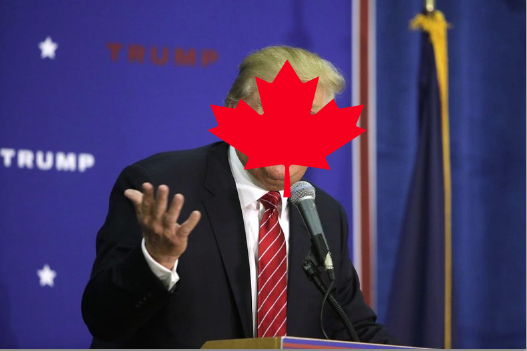
We’re officially 102 days away from the next federal election. But how much do you know about the people competing to be Canada’s next Prime Minister? What about the candidates running to represent you in your riding?
And how about the candidates currently campaigning for the American presidential elections? Although it’s hard to tell some of those running apart from formally-clad stock image models, you’d be hard pressed to find someone who hasn’t heard of (and formed opinions on) Bernie Sanders, Elizabeth Warren, Joe Biden, Kamala Harris, and of course Donald Trump.
Why is it that we’re more informed about an election that won’t be decided until more than a year from now, for a leader that won’t even govern us, than our own upcoming federal election?
Since Donald Trump was elected, the U.S. has become a nasty neighbour. It’s no wonder Canadians pay attention to U.S. politics — the U.S. has a massive influence on Canadian trade, politics, and the economy. But at the end of the day, Canadians should focus on improving Canada.
Some people have a plan for that, and none of them are named Elizabeth Warren.
In Canada, official campaigning can’t begin until the Prime Minister visits the Governor General and asks them to call an election, and our election period is far shorter than the States’. There’s less time for the scandal and sensationalization that take over the media in the months before U.S. elections.
Part of the reason for this is that Canada does not have a presidential system — we have a constitutional monarchy modelled after the British Parliamentary system. This means Canadians never actually elect the most powerful person in their country.
Instead, citizens cast their votes in their riding for one representative. The representative with the most votes wins that riding and becomes a Member of Parliament for that area — and gets one of the 338 valuable seats in the House of Commons. To become Prime Minister, you have to be the leader of the party that wins the most seats and forms government.
When you’re not electing the president of one of the most important countries in the world, it’s easy to feel like your vote doesn’t matter.
Despite the absence of direct democracy, the majority of Canadians still vote — 68.3 per cent of Canadians voted in the last federal election (a substantially higher than previous elections), which is higher than U.S. voter turnout in over a century.
In the coming election, how can we ensure that turnout remains high?
The best thing you can do to stay informed is simply follow along with the ongoing political situation both nationally and locally, which yes, is still being covered by Canadian news outlets despite the cacophony of U.S. political drama.
A good place to start is the federal elections FAQ published by Maclean’s. It breaks down who might be the next prime minister, several key issues that are likely to come up, and what Canada’s doing to prevent Russian interference in the election.
Along the lines of foreign interference and fake news, the CBC has written two investigative articles about what disinformation is and what tools Canadians can use to spot it. They’re a worthwhile read, especially if you interact with political posts on social media.
Once the election is called, the CBC will also likely launch Vote Compass again, which is a survey designed by political scientists to objectively show voters where they fall on the political spectrum in relation to Canada’s federal parties. This 15-minute survey is an easy way to learn more about each political party’s policies.
Know each name that will appear on your ballot (available on the elections Canada website). Know their stance on the issues that are important to you, and maybe even some of the issues that aren’t. And most of all, know that your vote is critical in deciding the direction of our country, and a privilege that many around the world are unable to share.







